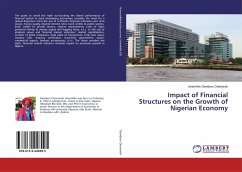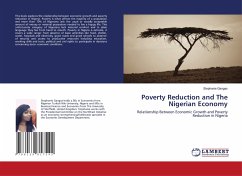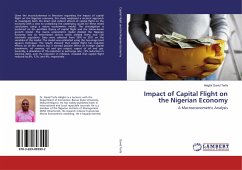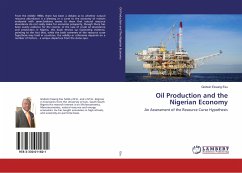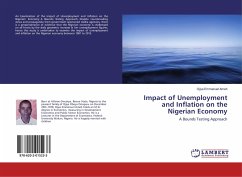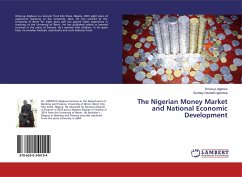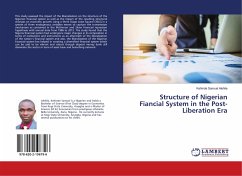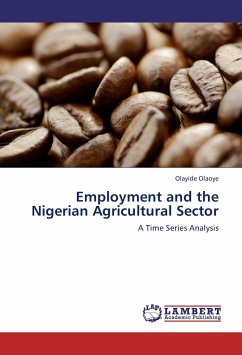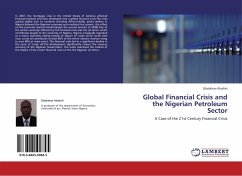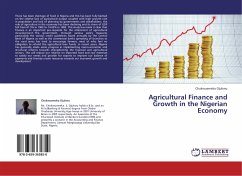
Agricultural Finance and Growth in the Nigerian Economy
Versandkostenfrei!
Versandfertig in 6-10 Tagen
27,99 €
inkl. MwSt.

PAYBACK Punkte
14 °P sammeln!
There has been shortage of food in Nigeria and this has been fully blamed on the relative lack of agricultural output coupled with high growth rate in population and lack of planning by governments and stakeholders. the role of agriculture in the economy has been declining and its share of GDP fell from 61.5% in 1963 to 14.63% in 1983. This study has made it clear that finance is an important pre-requisite for the attainment of agricultural development. The government, through various policy measures particularly the various credit guidelines issued annually by the Central Bank of Nigeria as w...
There has been shortage of food in Nigeria and this has been fully blamed on the relative lack of agricultural output coupled with high growth rate in population and lack of planning by governments and stakeholders. the role of agriculture in the economy has been declining and its share of GDP fell from 61.5% in 1963 to 14.63% in 1983. This study has made it clear that finance is an important pre-requisite for the attainment of agricultural development. The government, through various policy measures particularly the various credit guidelines issued annually by the Central Bank of Nigeria as well as the commercial banks spreading of branches to the rural areas has tried to encourage farmers, most of who feel no obligation to refund the agricultural loan funds. In recent years, Nigeria has generally made some progress in implementing macro-economic and structural reforms towards strengthening the financial and agricultural sectors. This will reduce our reliance on imported food and raw materials to satisfy our needs and provide for exports to improve our balance of payments and thereby create resources towards our economic growth and development.



